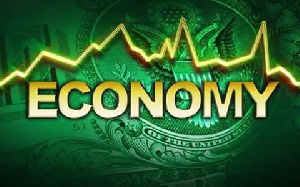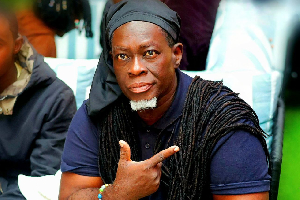Ghana's economy, like that of other emerging countries, is likely to reel under new external pressures as global economic growth is estimated to slow to 2.9 per cent this year.
The latest development stems from the trade tensions between the United States and China and the on-going slowdown of China’s economy.
Global economic growth rate is said to slow to 2.9 per cent in 2019 from a downwardly revised 3 per cent in 2018, according to the World Bank.
In its Global Economic Prospects report released a fortnight ago, the World Bank said the outlook for the global economy “has darkened” as global financing conditions have tightened, trade tensions “have intensified,” and some large emerging market and developing economies have experienced significant financial market stress.
“Faced with these headwinds, the recovery in emerging market and developing economies has lost momentum,” the report indicated.
Indeed, China recorded its slowest annual economic growth rate since 1990 to 6.6 per cent in 2018. Many manufacturing firms in the world’s second largest economy are reported to have cut production as export uncertainties grow following import tariffs imposed on China by the United States.
The imminent threat this poses to Ghana’s economy is the shortfall in its (Ghana’s) export revenues, as China’s economic growth has an effect on international commodity prices.
This comes at a crucial time as Ghana recently rebased its economy, expanding it by almost 25 per cent and is hoping to sustain its economic growth going forward.
Having been on a losing streak in recent years, oil prices on the world market picked up from the beginning of 2018 and traded between $65 and $75 per barrel until the last quarter of that year when prices of the commodity dipped to as low as $43.
Crude oil is one of China’s biggest imports.
Meanwhile, Ghana’s benchmark crude oil price for 2019 as indicated in the 2019 Budget Statement has been pegged at US$66.76 per barrel. Although it is early in the year to be worried over oil revenue shortfall, it will suffice to note that prices of the commodity is yet to rise beyond $54, three weeks into 2019. If this continues for a larger part of the year, it could distort Ghana’s Petroleum Benchmark Revenue.
It would be recalled that government in 2015 had to revise its oil revenue projection downwards from $80 originally contained in the 2015 Budget Statement to $57, on the back of plummeting world oil prices.
Ghana is neither faring any better with regards to global prices of its other traditional export commodities.
Gold price fell below $1,300 an ounce in mid-2018 and traded at an average of $1,220 for the remaining months of that year. The commodity has held steady since the start of this year at $1,290 but slipped at the close of trading last week and is currently trading at $1,279.
Cocoa prices are slipping after beginning the year from $2,440 a tonne to currently trade at $2,249.
Another external development that threatens Ghana’s economic stability this year is the expected US Federal Reserve Bank’s interest rate hike. Officials of the Fed Bank have projected two hikes this year and although fewer than the four increases recorded in 2018, this year’s have a potential of affecting Foreign Direct Investment (FDI) inflows into Ghana as well as put a strain on the local currency.
Ghana’s economic performance in 2019 - following the rebasing of its economy last year - would have to contend with the slowdown just as it does with its own domestic economic instability such as inflation and depreciation of the cedi.
Business News of Sunday, 27 January 2019
Source: thefinderonline.com













